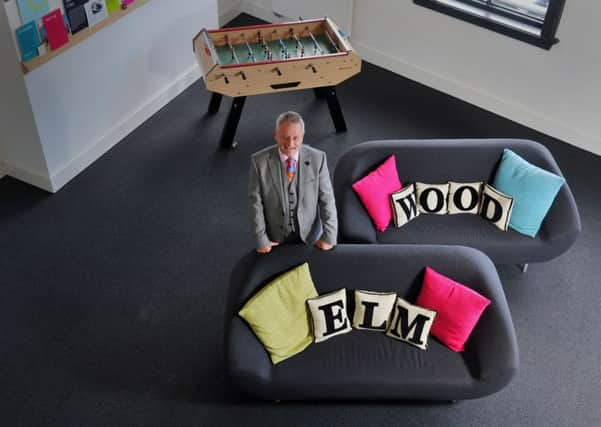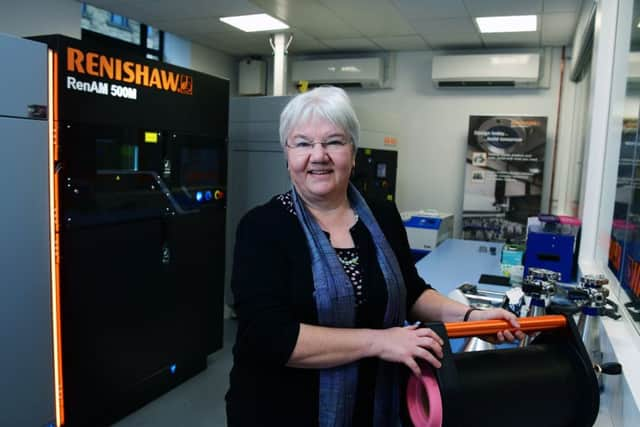Time to build a head of STEAM and not stifle creativity


Rightly so as the UK needs to position itself so that it can be at the vanguard of the fourth industrial revolution.
However, this should not be to the detriment of Britain’s existing strengths, namely in creative fields.
Advertisement
Hide AdAdvertisement
Hide AdWe have long led from the front, whether that be in graphic design, film or music. But if we don’t allow the creative impulses of future generations to flourish in schools because of our monomania with STEM, this strength will disappear.


It will have an adverse impact on industries that are reliant on bright, creative minds, including many digital companies.
Earlier this year, when I spoke to Jonathan Sands, chairman of the Leeds-based design agency Elmwood, he warned that a lack of emphasis on creative subjects was an “emerging threat” to UK plc.
He lamented the fact that the creative industries was not represented as one of the key ranking criteria by Ofsted.
Advertisement
Hide AdAdvertisement
Hide AdWhy would schools focus their energies on creativity if it isn’t being measured to the same extent as maths or science?
Mr Sands said: “When all public sector industries are strapped for cash, schools being one of them, why would they invest in things like musical instruments for example, which cost a lot of money and are part of creative subjects, if they’re not going to get measured by the success of their musical output.
“Are they going to invest in the latest design kit in terms of Macs, software and virtual reality kit if ultimately they are not going to get measured on the success of the output of their creative product?”
While Mr Sands has obvious interests in wanting to see the creative industries thrive, I was surprised to hear another figure add to his voice and call for a more creative twist to the curriculum. Professor Liz Towns-Andrews is the CEO of the 3M Buckley Innovation Centre (BIC) in Huddersfield.
Advertisement
Hide AdAdvertisement
Hide AdShe is a trailblazer in science having been part of a research council and worked on a synchrotron, that’s a large and high powered x-ray machine in layman’s terms.
Professor Towns-Andrews has done a sterling job of bringing business and academia together at 3M BIC and the scientist wants to scrap the STEM acronym altogether.
“I’m adamant that STEM is not the future,” she said. “STEAM, science technology engineering arts and mathematics, is the future.”
The trained chemist believes that in order to get more girls into STEM, you need to change the way these subjects are taught and bring in the arts as a way of stimulating their interests.
Advertisement
Hide AdAdvertisement
Hide AdRecently she ran a workshop which taught girls, aged 11 and 12 years old, how to solder a printed circuit board. They then stuck that printed circuit board in to a computer and played music.
“It was a way of engaging them, through music, in science and technology,” she said. “You could do the same with photography for example.”
Perhaps this head first drive towards STEM, on its own, is not the way forward. Maybe STEM excellence doesn’t need to come at the expense of creativity.
A lack of emphasis on creativity when teaching science and maths could well be hindering the flow of women coming into technology and engineering. “What makes it cool to boys quite often is communicating engineering in the terms of Formula One or High Speed Rail,” Professor Towns-Andrews says.
Advertisement
Hide AdAdvertisement
Hide Ad“If a vehicle could be found that girls are engaged with, perhaps through more creative disciplines like music, that would help.”
On the week that Leeds Manufacturing Festival kicks off, it’s important that science and engineering are given priority.
But a more nuanced approach that preserves our existing strengths and promotes a more practical approach to science, maths and technology in the classroom would be a welcome boost for industry.
It’s disheartening to hear that the way STEM subjects are taught hasn’t changed much over the years. It would be equally disheartening if in years to come we look back and see our creative strengths had been stifled.